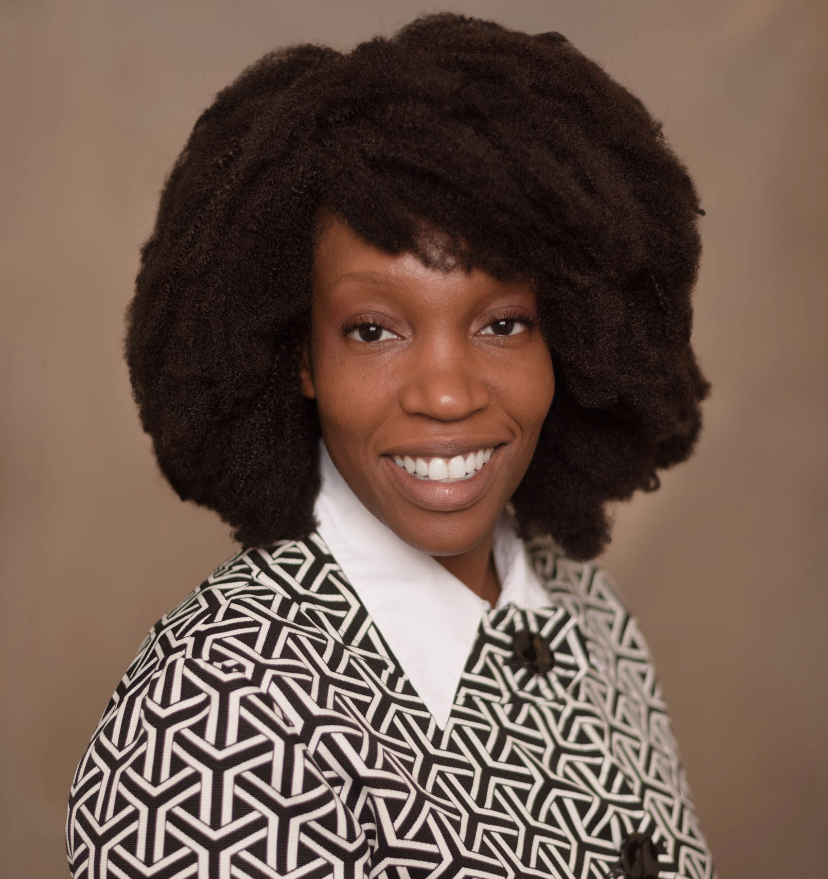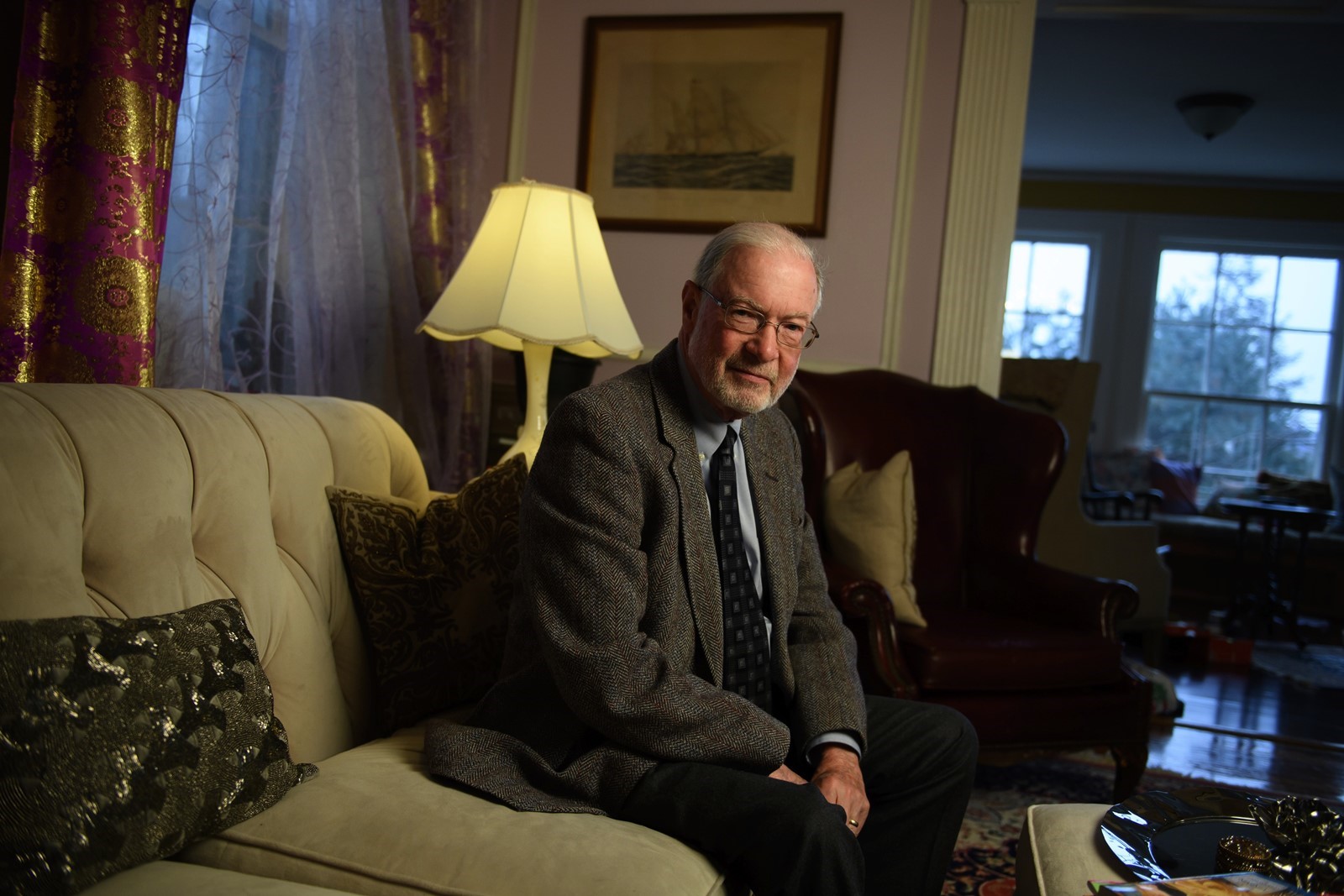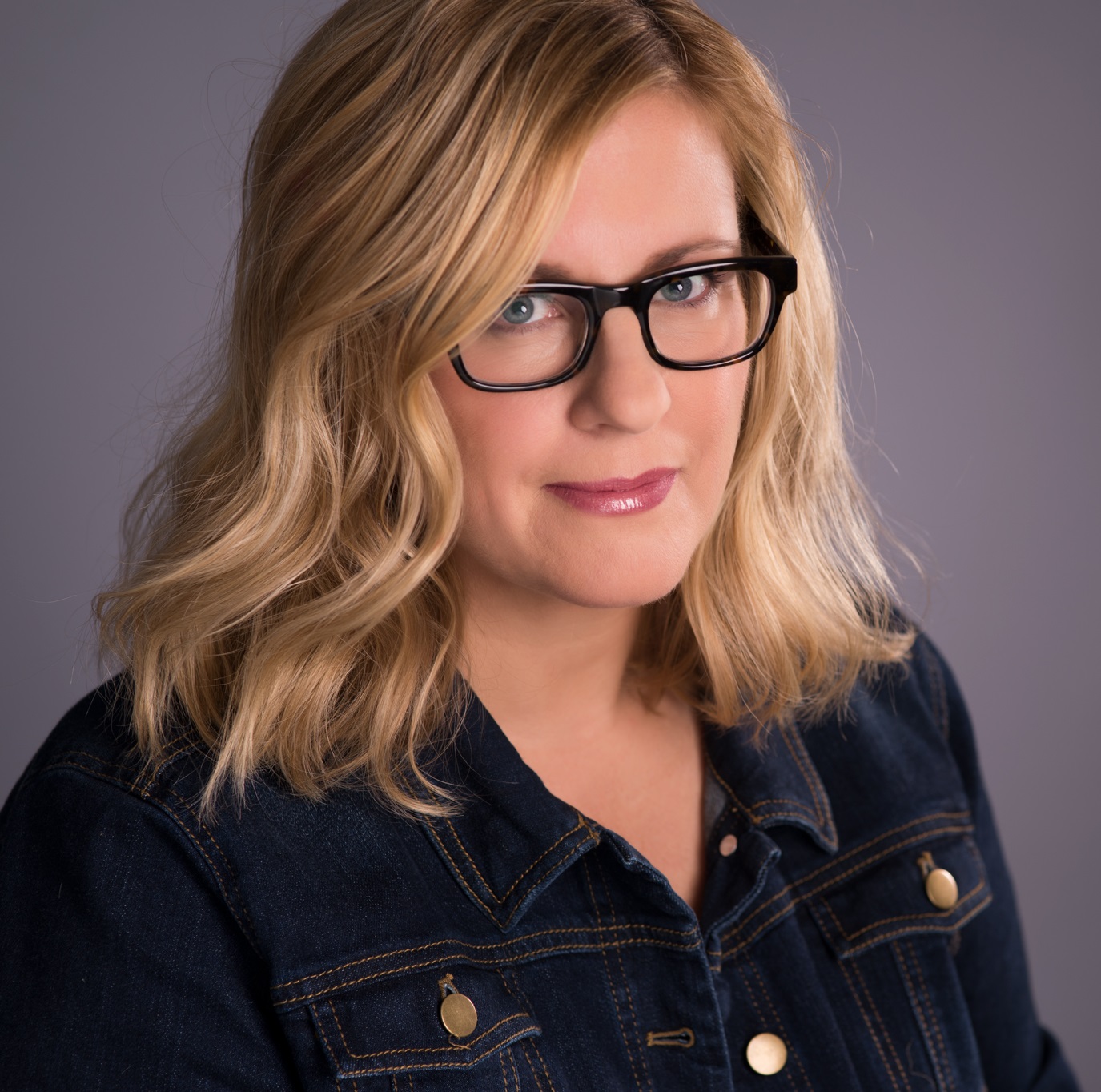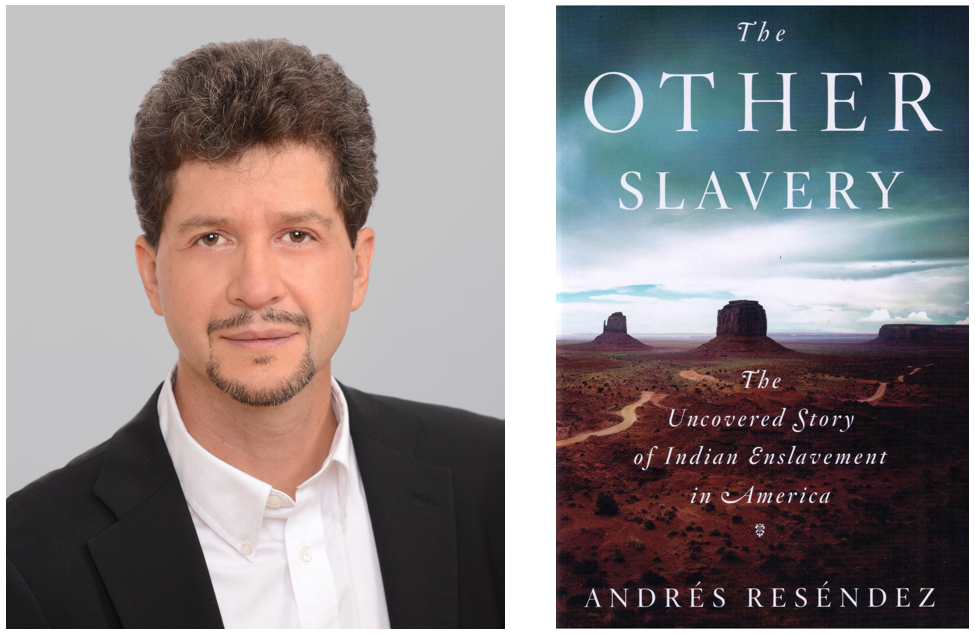Organized in memory of University of Nebraska-Lincoln alumnus Carroll R. Pauley (class of 1930), the Pauley Symposium takes place every three years on the University campus. Pauley memorial lectures are held in the years between the symposia. Both events feature a wide variety of speakers addressing current research in history and other social sciences, engaging both academics and the general public in an open discussion of the relationship between the past and the present.
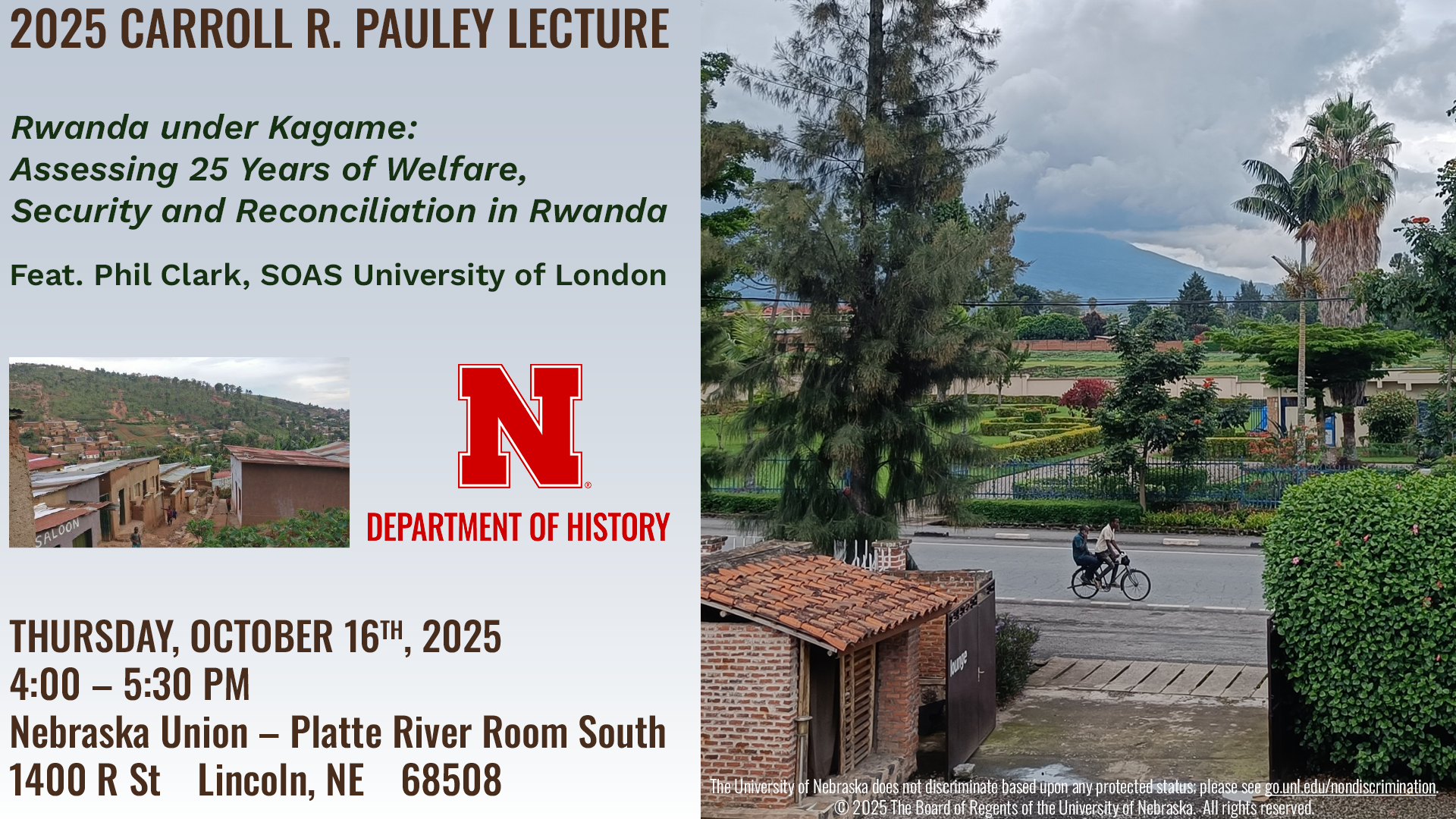
The 2025 Pauley Lecture examines Rwanda’s paradoxical trajectory since Paul Kagame became President in 2000. While the country has attracted regular criticism for its crackdown on dissent at home and abroad and its involvement in conflict in the wider Great Lakes region, it has experienced a remarkable recovery since the 1994 Genocide against the Tutsi. This includes the peaceful return of hundreds of thousands of convicted genocide perpetrators to the same communities where they committed crimes in 1994. Meanwhile, Rwanda has built one of Africa’s most expansive social welfare systems, with heavy investment in healthcare and education. These policies have helped increase Rwandans’ average life expectancy from 47 to 69 years under Kagame’s presidency. How has a state often depicted as authoritarian, led by a President commonly described as a dictator, achieved these substantial social and economic gains? What does this mean for Rwanda’s long term social equilibrium? And how does the Rwandan case illuminate wider debates about democracy and authoritarianism in the 21st century? This lecture will tackle these pressing questions, drawing on the speaker’s more than 20 years of conducting field research in Rwanda.
Phil Clark is a Professor of International Politics at SOAS University of London. His research and teaching focus on conflict and post-conflict issues in Africa, with a particular interest in justice, reconciliation, peacebuilding and welfare in the Great Lakes region.
His most recent books are Distant Justice: The Impact of the International Criminal Court on African Politics (Cambridge University Press, 2018) – shortlisted for the Raphael Lemkin Award for best book on genocide and mass violence – and The Gacaca Courts, Post-Genocide Justice and Reconciliation in Rwanda: Justice without Lawyers (CUP, 2010). He is currently completing a book on welfare, post-genocide inequality and reconciliation in Rwanda, to be published by Hurst and Co. Publishers and Oxford University Press in 2025.
His writing has appeared in The New York Times, Foreign Affairs, the Washington Post, the Guardian, Dissent, the East African, Prospect, the Times Higher Education Supplement, The Australian and the BBC, CNN and Al Jazeera websites. He is a regular radio and TV contributor on the BBC, France 24, Al Jazeera, CNN, Deutsche Welle, TNT and Monocle 24.
Professor Clark is a member of the United Nations expert group on reconciliation and the Law and Peace Practice Group of the Institute for Integrated Transitions (IFIT). He holds a DPhil in Politics from the University of Oxford, where he studied as a Rhodes Scholar.
2024

The 2024 Carroll R. Pauley Symposium celebrated the 48-year career of Emeritus Professor Parks Coble with an examination of the legacy of republican China. The Republic of China was born in the 1911 Revolution and ushered in an era of revolution, war, and turbulence. China experienced economic changes, imperialist incursions, foreign invasion, and massive movement of people. Yet it was also a time in which modern literature flourished, diverse political ideas developed, and journalism reached new readers. The era left rich and varied historical sources. The seven scholars who presented at the Pauley Symposium plumbed these sources to offer exciting insights into the legacy of this era for today’s China.
The Symposium and its speakers’ information can be viewed via the event’s page; this page also links to the event’s schedule.
Past Pauleys
2023
In 2015 and again in 2022, students and staff in South Africa relied on a series of protests, strikes, and campaigns to demand change in higher education. These demonstrations came to be known as the #FeesMustFall campaign, a decolonial strategy that referenced students’ core demand for a free and quality education, what they claim is a sacred human right. How did South African students shut down all the country’s universities while inspiring protests in the United States, the United Kingdom, Cameroon, and India? Historian Tshepo Masango Chéry discussed the intersections between race, education, protest, and religion in her lecture entitled “‘The University Belongs to Us!’ Meditations on Protest and Change in South Africa’s Higher Education and Beyond.” Reaching back to the 1955 Freedom Charter that declared education as liberation and culminating in the Soweto Uprising of 1976, in which state-sanctioned violence thwarted youth protest, Masango Chéry historicizes these contemporary struggles as part of South Africans’ tradition of protest. These historical moments in South Africa provide us with the political creativity and inspiration to reimagine the current neoliberal structures that organize our own universities in the United States.
Tshepo Masango Chéry is an Assistant Professor in the Department of History at the University of Houston. She is a South African scholar who turns to religion as a site from which to historicize liberation struggles in Africa.
2022
The 2022 Pauley was a conversation with John Roy Price and Dr. Tim Borstelmann titled “Reflections on Nixon’s Presidency.”
John Roy Price developed a keen interest in American History at Grinnell College, Iowa, where he earned his BA. He was selected as a Rhodes Scholar and earned a Masters degree from Oxford University in Philosophy, Politics and Economics. He completed a law degree from Harvard Law School and practiced law in New York. His work co-founding the Republican policy group, the Ripon Society, led to his involvement in the presidential campaigns of Gov. Nelson Rockefeller of New York, and then Richard Nixon. Price served as Special Assistant to the President for Urban Affairs in Nixon’s first term. Price worked with Nixon on the president’s quite surprising social policies, including welfare reform, hunger and nutrition, and Nixon’s 1971 proposal for a national health insurance program. He returned to New York and a career in finance, with thirty years there, ending as a Managing Director of JPMorgan Chase. This was followed by a tour as Senior Advisor to the Institute for International Finance, in Washington. It was capped by five years, during the financial crisis, as President and CEO of the Federal Home Loan Bank of Pittsburgh. He has been the President of the Bankers Association for Foreign Trade, the Chairman of the start up electronic mortgage trading platform, MAXEX, and a Director of the Pittsburgh Symphony Orchestra. He lives in Pittsburgh and in Livingston, Montana. John Roy Price’s memoir is titled The Last Liberal Republican: An Insider’s Perspective on Nixon’s Surprising Social Policy.
Thomas (Tim) Borstelmann is E.N. and Katherine Thompson Professor of Modern World History at the University of Nebraska-Lincoln.
2021
The Pauley was a combined symposium with the James A. Rawley Graduate Conference in the Humanities. The Symposium’s schedule and information can be viewed here.
2019
Dr. Bruce Pauley presented “Husker Football in the Age of Reform and Progress, 1890-1920.”
This lecture is part of a larger study of everyday life in an age of phenomenal social, political, and economic changes. An agrarian, frontier society was replaced by one which was increasingly urban. The three decades were the golden age of streetcars, trains, and newspapers. They marked the end of horse-drawn buggies and the arrival of automobiles, movies, electric lights, and modern hospitals. Women not only gained the vote but also played a dominant role in the prohibitionist movement.
Meanwhile, small denominational colleges were replaced by rapidly growing public universities including the University of Nebraska whose enrollment grew from fewer than six hundred in 1890 to nearly seven thousand in 1920. During the same period the supremacy of Ivy League football was being challenged by Midwestern schools. Husker football went from non-existence to becoming one of the country’s powerhouses. Meanwhile the rules of football changed drastically into becoming much as they are today, while attempts to make the game safer had only limited success.
2018
Dr. Amy Bass presented “Listen to Athletes for a Change: Race, Politics, and Sports.”
What happens when athletes use their moments on the field, the court, the track or the pitch to make a political statement? Do we have different expectations of who they are and what they are or should be doing? Historian Amy Bass discussed the intersections between politics and sports, from her work on the black power protests at the Olympic Games in 1968 to her most recent book, One Goal, about Somali refugees in Maine and soccer.
Professor of History and Director of the Honors Program at The College of New Rochelle, Amy Bass’ research interests include African-American history; modern American culture, with a particular focus on sports; identity politics; and historical theory and methodology. She has published her research extensively, including the prestigious Journal of American History and South Atlantic Quarterly, and has presented at a range of national meetings, including the American Historical Association, the American Studies Association, the Organization for American Historians, and Association for the Study of African American Life and History. As well, she has contributed to organs such as Slate, Salon, CNN Opinion, and The Christian Century. Her first book, Not the Triumph but the Struggle: The 1968 Olympic Games and the Making of the Black Athlete, is considered a standard-bearer for those interested in writing about sports from a cultural perspective. Her edited collection, In the Game: Race, Identity and Sports in the 20th Century, solidified that reputation. Her third book, Those About Him Remained Silent: The Battle Over W.E.B. Du Bois, on the culture of civil rights struggles and memory, received an Honorable Mention from the National Council on Public History. Her most recent work, One Goal: A Coach, A Team, and the Game That Brought a Divided Town Together, came out in February from Hachette Books. Bass edits her own series, “Sporting,” for Temple University Press, and served as senior research supervisor for NBC Olympic Sports, winning an Emmy Award for her work at the London Olympics in 2012.
2017
A historian at the University of California, Davis, Andrés Reséndez received the Bancroft Prize for The Other Slavery: The Uncovered Story of Indian Enslavement in America.
The Other Slavery examines the system of bondage that targeted Native Americans, a system that was every bit as terrible, degrading, and vast as African slavery. Anywhere between 2.5 and 5 million
Native Americans may have been enslaved throughout the hemisphere in the centuries between the arrival of Columbus and the beginning of the 20th century. And, interestingly, in contrast to African slavery which targeted mostly adult males, the majority of these Indian slaves were women and children.
Andrés Reséndez grew up in Mexico City where he received his B.A. in International Relations, briefly went into politics, and served as a consultant for historical soap operas (telenovelas). He got his Ph.D. in History at the University of Chicago and has taught at Yale, the University of Helsinki, and at the University of California, Davis where he is currently a history professor and departmental vice chair. He lives with his family in Davis, California. He is the author of The Other Slavery: The Uncovered Story of Indian Enslavement in America, finalist for the 2016 National Book Award and winner of the 2017 Bancroft Prize. His other books include A Land So Strange: The Epic Journey of Cabeza de Vaca (Basic Books, 2007), and Changing National Identities at the Frontier: Texas and New Mexico, 1800-1850 (Cambridge University Press, 2005).
2016
Legal Borderlands in the North American West: Legal borderlands include spaces crisscrossed by jurisdictional, political, and racial/ethnic boundaries. Other legal borderlands are international boundaries that divide cities and families. In addition to physical spaces, legal borderlands also include philosophical spaces where the legal code is ambiguous or contradictory—those offering “separate, but equal” protections, for instance, or those defining American Indians simultaneously as sovereign nations and as wards of the federal government. Similarly contradictory legal borderlands include the many competing codes and jurisdictions regulating criminal law, immigration, mineral rights, reproductive rights, water distribution, and other fundamental concerns in the legal history of the North American West. Attendees joined us in exploring these legal borderlands through a keynote lecture, roundtable discussions, and gallery talk October 6 and 7.
2015
Darlene Clark Hine, Board of Trustees Professor of African American Studies and History at Northwestern University, delivered the 2015 Carroll R. Pauley Memorial Lecture on the “Rights of Citizenship: Historical and Contemporary Perspectives on Race and Healthcare in America.”
Darlene Clark Hine (PhD Kent State University, 1975) is a leading historian of the African American experience who helped found the field of black women’s history and has been one of its most prolific scholars. A past-president of the Organization of American Historians and the Southern Historical Association and the winner of numerous honors and awards, she is the Board of Trustees Professor of African American Studies and History at Northwestern. Her numerous publications include The African-American Odyssey, Black Victory: The Rise and Fall of the White Primary in Texas, Black Women in White: Racial Conflict and Cooperation in the Nursing Profession, 1890-1950, The Harvard Guide to American History, Hine Sight: Black Women and the Re-Construction of American History, More Than Chattel: Black Women and Slavery in the Americas, A Question of Manhood: A Reader in U.S. Black Men’s History and Masculinity, A Shining Thread of Hope: The History of Black Women in America, Speak Truth to Power: Black Professional Class in United States History, and “We Specialize in the Wholly Impossible”: A Reader in Black Women’s History. She has been awarded fellowships and grants by the American Council of Learned Societies, the Center for Advanced Study in the Behavioral Sciences, the Ford Foundation, the National Endowment for the Humanities, the National Humanities Center, the Radcliffe Institute for Advanced Study, and the Rockefeller Foundation.
2014
Emily Rosenberg, Professor of History, University of California, Irvine spoke on “The Great War and the American Empire.”
2013
The 2013 Lecture was delivered by R. Paul Thompson from University of Toronto. Dr. Thompson spoke on “Water, Food Security, and Agro-technology: Current Challenges Placed in Historical Context.”
2012
Oct. 17, 7 p.m. — In conjunction with the E.N. Thompson Forum on World Issues, the symposium welcomed keynote speaker Charles Villa-Vicencio, a South African theologian regarded as a global authority in the area of transitional justice. He presented “Violence, Religion, Financial Muscle and Liberation: Can Africa Heal Itself?” at the Lied Center for Performing Arts, 301 N. 12th St.
Oct. 18 (all in the Nebraska Union auditorium, 14th and R streets):
- 8:45 a.m. — Elazar Barkan, professor of international and public affairs at Columbia University and director of Columbia’s Institute for the Study of Human Rights, presented “Beyond Accountability: Historical Dialogue and Conflict Resolution.”
- 9:45 a.m. — Alexander Byrd, associate professor of history at Rice University, presented “Intransigent Blackness: Houston’s African American High Schools since Brown.”
- 11:15 a.m. — J.R. Miller, Canada research chair in native-newcomer relations at the University of Saskatchewan, presented “History Rediscovered and Refashioned: The Role of History in Canadians’ Pursuit of Reconciliation with Indigenous Peoples since the 1970s.”
- 1:30 p.m. — Christina Schwenkel, associate professor of anthropology at the University of California, Riverside, presented “The Ambivalence of Reconciliation in Vietnam.”
2011
Carroll R. Pauley Memorial Lecture: “Killing for Coal: America’s Deadliest Labor War,” presented by Bancroft Prize-winner Thomas G. Andrews, an Associate Professor of History at the University of Colorado, Boulder.
September 15, 2011, at 7:30 PM, in the Great Plains Art Museum
2010
Carroll R. Pauley Memorial Lecture: “‘A formal hypocrite, a loathsome animal’: Scotophobia, Anti-Puritanism and Charles I’s Appeal to Public Opinion on the Eve of the English Civil War,” presented by Tim Harris, Munro-Goodwin Wilkinson professor in European history at Brown University.
October 28, 2010, at 7:30 PM, in the City Union Auditorium, University of Nebraska-Lincoln
2009
Carroll R. Pauley Memorial Lecture: “Sports in History, History in Sports”
October 22-23, 2009, in the City Union Auditorium, University of Nebraska-Lincoln
2008
Carroll R. Pauley Memorial Lecture: “Religion, Sex, and Politics: The Rev. Henry Ward Beecher and 19th-Century American Culture,” presented by Pulitzer prize-winning biographer Debby Applegate.
October 16, 2008, at 7:30 PM, in the Great Plains Art Museum
2007
Carroll R. Pauley Memorial Lecture: “Academic Freedom in the Age of Homeland Security,” presented by Barbara Weinstein, New York University, President, American Historical Association, response presented by Waskar Ari, University of Nebraska-Lincoln Department of History and Institute for Ethnic Studies.
October 11, 2007, at 7:30 PM, in the City Union Auditorium, University of Nebraska-Lincoln
2006
Carroll R. Pauley Memorial Lecture: “History in the Digital Age”
September 21-22, 2006, University of Nebraska-Lincoln
First Annual Nebraska Digital Workshop, September 23, 2006, University of Nebraska-Lincoln
2005
Carroll R. Pauley Memorial Lecture: “The American Century and Beyond: Two German Perspectives,” presented by Detlef Junker and Philipp Gassert of the Center for American Studies at Germany’s University of Heidelberg.
September 7, 2005, at 7:30 PM, in the City Union Auditorium, University of Nebraska-Lincoln
2004
Carroll R. Pauley Memorial Lecture: “The Kansas-Nebraska Act and American Political Culture,” presented by Pulitzer Prize-winning historian Mark Neely Jr. of Pennsylvania State University.
September 20, 2004, at 7:30 PM, in the Warner Senate Chambers, Nebraska Capitol Building
